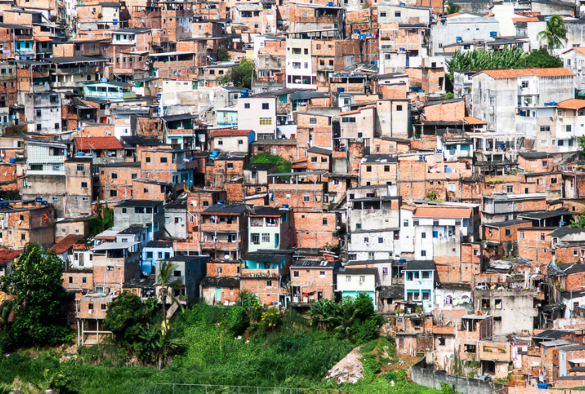Building healthy communities in urban Brazilian slums
Published on

The University of Liverpool is leading a major new international project to enhance wellbeing in urban slums.
Urbanisation provides one of today’s major public health challenges. In low income cities in the tropics, infectious diseases, linked to contaminated water and food and limited sanitation exist alongside increased risks of air and water pollution. Social violence is often epidemic. Here, the young are among the most vulnerable, but also often those with least voice in decisions about their future. The city of Salvador, Brazil, where the project is based, exemplifies these problems.
The £2m award has been funded by the UK government’s Global Challenges Research Fund (GCRF) and brings together collaborators from the University of Liverpool, Lancaster University, the London School of Hygiene and Tropical Medicine, the Swedish University of Agricultural Science, The Federal University of Bahia as well as community associations, municipal and national authorities in Brazil.
The work will focus on the interacting effects of infectious diseases that represent three different transmission routes. Firstly, Leptospirosis and enteric (gut) infections, which are environmentally transmitted via rats, water and soil where sanitation is poor. Secondly, Zika, Dengue, and Chikungunya, caused by mosquito-borne pathogens whose risk is associated with mosquito infestation and reproduction. Finally, directly transmitted infections, including Tuberculosis (TB) and COVID-19, and sexually transmitted infections including HIV.
The project is led by Professor Mike Begon at the University of Liverpool, who said: “Empowering local communities is a key aspect of this research. We will establish community working groups, led by young residents, consisting of researchers, local stakeholders and community leaders. Evidence-based interventions will be chosen by the local groups. Our aim is to not only enhance wellbeing in communities in Salvador but provide a blueprint for similar projects in urban slums worldwide.”
The project, entitled ‘Building healthy communities in urban Brazilian slums’, has been funded as part of UKRI’s GCRF Medical Research Council focused ‘Health and Context’ scheme, developed to address contextual factors that contribute to the burden of infectious and non-communicable diseases.
For more information about Global Challenges research at the University of Liverpool please visit here.
University of Liverpool staff interested in Global Challenges research or seed funding can also find more information on our intranet.